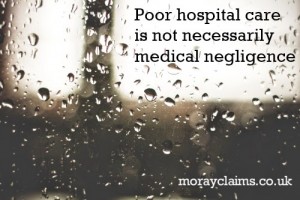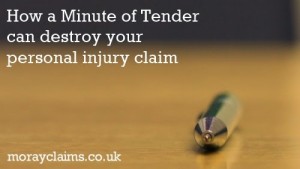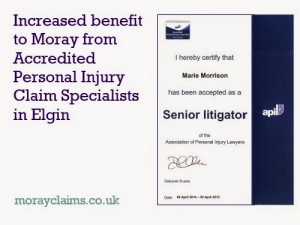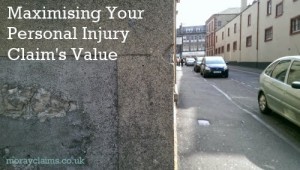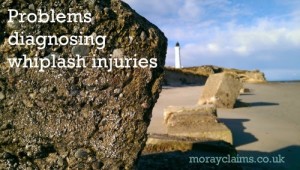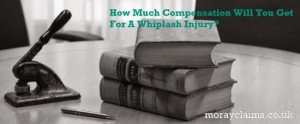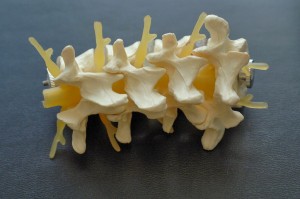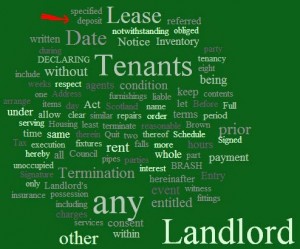It’s always a worry if you have to have hospital treatment. You’ll be concerned about the procedure or operation, any anaesthetic and the recovery period. The practicalities of your stay in hospital will also be on your mind, such as sharing a ward with others and the quality of the food. You’re unlikely to think about the risk of being injured due to medical negligence during your stay because health service staff are dedicated professionals working hard to deliver the best possible care. Their jobs require them to deal with deadlines and to keep within strict budgets. Sometimes, they have to exercise judgement in making decisions, weighing up competing risks. And medical science is not an exact science. Unfortunately. things don't always work out for the best. You need to understand that, if things go wrong and outcome of your treatment is not as you would wish, just because you have experienced poor standards of care, that does not necessarily mean you have Continue Reading
How Insurance Disclosure Reform Can Help Your Claim Succeed (And Save You Money)
Consumer claims on home and other insurance policies should now succeed more easily We’re now just over a year into a new legal framework which could benefit you, as a consumer, if you have to make a claim on insurance and your insurer refuses to honour it. The range of consumer insurance policies affected is very wide indeed. In our experience, most people have a wrangle with an insurance company sooner or later. This change to the law is something worth bearing in mind if you find yourself in dispute with an insurer over a claim you have made on a policy. The fatal mistake – failure to disclose Typically, the scenario is one where your insurer says that, at the time you took out the insurance (or renewed it), you failed to tell them about some important fact which would have influenced the level of premium – or even whether they would have agreed to insure you at all. In those circumstances, the insurer would refuse to pay out on your claim, or could impose Continue Reading
How A Minute Of Tender Can Destroy Your Personal Injury Claim
A Minute of Tender can be an effective weapon in a Scottish personal injury court action A Minute of Tender is a device used in Scottish personal injury court actions which can undermine – and, at worst, destroy - your claim for compensation. For that reason, it is worthwhile understanding how Minutes of Tender work. So, firstly, we need to go back a bit – to before the court action. When will you need a court action? If your personal injury claim cannot be settled by negotiation, you will have to raise a court action. Generally, for that to happen, your solicitor will have to assess that your claim has a better than 50/50 chance of success. In the worst case, the dispute will be about whether you should get any compensation at all. A less serious problem is where it is just the value of the claim which cannot be agreed. In other words, there is agreement that some compensation should be paid but the opposing insurers are not offering a reasonable amount. How Continue Reading
Increased Benefit To Moray From Accredited Personal Injury Claim Specialists in Elgin
Marie Morrison of Grigor & Young / Moray Claims has gained a further Personal Injury Accreditation Editor’s note (November 2025): The information in this post is now out of date. At the time of publication, Marie Morrison was accredited by the Law Society of Scotland as a Specialist in Personal Injury Law. She has since chosen not to renew that accreditation but remains accredited by the Association of Personal Injury Lawyers (APIL) as a Senior Litigator. For up-to-date information about our team’s current accreditations, please visit our About Us page. Do you live in Moray or the surrounding area? If you live in Elgin or Forres (or anywhere else in Moray) and have to make a claim for compensation for personal injuries suffered as the result of an accident – on the roads, at work or elsewhere - you need a specialist, accredited solicitor to handle your case. You need to know that the person you are trusting to get the best outcome possible Continue Reading
Maximising Your Personal Injury Claim’s Value
North Street, Elgin, Moray Your personal injury claim is primarily about money. It’s true that other aims are possible - and often more important than just the compensation. One example is maximising your level of recovery from injuries through rehabilitation provided as part of your claim. Another possible driver is “trying to make a point” so the negligent party takes notice and changes their practice for the future, reducing the chances someone else will be injured in the way you were. It's all about money But personal injury claims are really about financial compensation. The law tries to put you, as the injured person, back in the position you would have been if the accident had not happened – so far as that is possible in money terms. Given the emphasis on money, the aim is to maximise your damages. What are the main factors which have a bearing on how much money you receive (if any) at the end of your claim? Factor 1: Whether your claim succeeds at Continue Reading
Problems Diagnosing Whiplash Injuries
The Westminster Government is concerned that the quality of medical evidence in whiplash cases is not as good as it should be. It’s reckoned that claimants are duping doctors and exaggerating or inventing their whiplash symptoms. The Government proposes accreditation of medical experts to ensure greater consistency. The attack on whiplash claims is unrelenting. The insurance industry now suggests review of the law so that, as a matter of public policy, you should not be allowed to claim compensation for “low value” whiplash; instead, all insurers should have to pay is the cost of treatment, such as physiotherapy. What are the problems with whiplash? The terminology could be clearer, for a start. Whiplash is really a 'neck sprain', which commonly results from road traffic accidents where there is a rear end impact. It happens in an instant. The head is thrown first backwards and then forwards. Typically, the whole injury “event” is over within half a Continue Reading
How much compensation will you get for a whiplash injury?
Photograph: "Spines" by Nicky Mack Whiplash injuries to the upper spine can range widely in severity. From neck stiffness lasting for a day or two, the symptoms can extend to pain and restriction of movement which persists for months or even years. We have posted on this Blog previously about the “classic” whiplash accident mechanism – usually a road traffic accident involving a rear end shunt. Whiplash remains a controversial injury, which has become a bit of a political football. Because there are no physical signs associated with whiplash symptoms – such as would show up on x-rays or other scans – exaggeration and fabrication of claims is always a possibility. Likely claim value is a factor in deciding whether a claim is worth it or not If you are considering making a whiplash claim, you will be wondering how much your claim is going to be worth. It is reasonable to consider this, as you will want to weigh up whether it is going to be worth the time and Continue Reading
Medical Treatment Following Personal Injury (Keep Going Until You Are Discharged)
"Spine once more" found on flickrcc.net One of the frustrations for solicitors helping victims of accidents with their compensation claims is where medical records show that the injured person did not take up all the treatment which was available to them while recovering from their injuries. The “pain and suffering” value of your personal injury claim depends, broadly, on the severity of the initial injury and the length of time it takes you to make a full recovery. You rarely win if it's "you versus your medical records" Whilst your own evidence about the duration and extent of your symptoms will carry some weight, it is likely to be trumped by anything inconsistent contained in your medical records. So, for example, it will be difficult to argue two years after an accident that you have continuing shoulder pain related to the accident if your GP referred to you for physiotherapy at the 6-month mark and you failed to attend at all or stopped going for treatment before Continue Reading
Why An APIL Solicitor Is Best To Handle Your Personal Injury Claim
Peter Brash, Grigor & Young, APIL Senior Litigator Not every solicitor handles personal injury claims but, more importantly, not every solicitor who handles personal injury claims is a specialist. In previous posts, we have explained why you need a specialist personal injury solicitor, preferably local to you, to handle your claim for you; and how the Law Society of Scotland’s Accreditation scheme is one badge of recognition of skills beyond the ordinary in particular areas of law, such as personal injury. How else can you tell whether a solicitor is going to be up to the task of handling your claim? Membership of the Association of Personal Injury Lawyers (APIL) APIL is a not-for-profit organisation set up over 20 years ago to encourage accident prevention and assist accident victims through campaigns and lobbying. It has over 4,300 members, most of whom are UK-based solicitors. APIL’s headquarters are in Nottingham. The culture of the Continue Reading
Fatal Accident Claims in Scotland: Increased Compensation levels
Claims by three members of the family of a man who died as the result of a road traffic accident in Glasgow have been awarded damages totalling £106,500. Lady Wise, in the Court of Session, decided that the award of compensation in a previous similar case had been too low. She set the damages level for each claimant by applying an uplift of approximately 50% on the awards in the previous case. Pedestrian crossing accident Gavin Currie was 25 years old when he was knocked down on a zebra crossing on 28 December 2011. He died in hospital 2 days later. The Court described Gavin as a “fine young man with good employment prospects and a happy and settled family life”. He came from a close-knit family. Only value of claim disputed Liability for the accident was not in dispute but there was disagreement about the level of compensation to be paid to each of his parents and to his brother, Euan, by the insurers of the negligent driver. Tension between Judge and Jury damages Continue Reading
Accredited Specialist in Personal Injury Law: Marie Morrison
Well done, Marie! Marie Morrison of Grigor & Young, Solicitors, Elgin and Forres, and of Moray Claims has been accredited by the Law Society of Scotland as a Specialist in Personal Injury for a period of 5 years to 18 February 2019. The road to accreditation Marie has been a solicitor since 1992. She lives in Macduff, Banffshire, which is her home town. She returned there around 10 years ago, having worked as a Personal Injury solicitor with a number of firms in the Glasgow area following her qualification. Marie joined in Grigor & Young in 2006 and has dealt almost exclusively with personal injury claims throughout her time with the firm. She is an Associate with Grigor & Young and is also a member of the Association of Personal Injury Lawyers (APIL). Marie joins Peter Brash of Grigor & Young in having the same "PI" accreditation, which gives the firm - and Moray Claims - clear recognition of its expertise in relation to the law on accident and Continue Reading
Costly Failure Scottish Landlords Must Avoid
A Tenancy Deposit Must Be Lodged With An Approved Third Party [EDITOR'S NOTE: Please note that, while the article which follows is still relevant in terms of the way the value of claims under the Tenancy Deposit regime are calculated, the procedure for making such claims are to be made in Scotland has altered from 01 December 2017. Most private domestic tenancy issues (i.e. tenancies without a local authority or social landlord) have been removed from the jurisdiction of the Sheriff Court. Now, these are now under the control of the First-tier Tribunal for Scotland (Housing and Property Chamber). This change means that it is not going to be financially viable in most cases to employ the services of a solicitor to make such claims. You can find further information on the mygov.scot website). Whether you are a landlord or a tenant of residential property in Scotland, you need to be aware of the new tenancy deposit landscape as it can have significant financial implications Continue Reading
